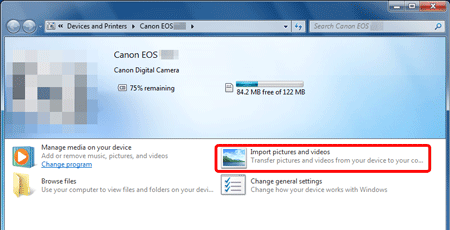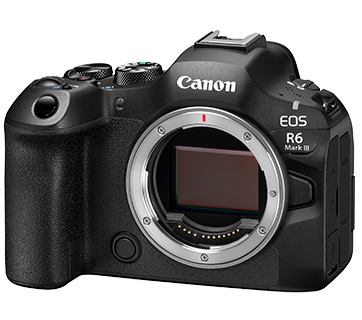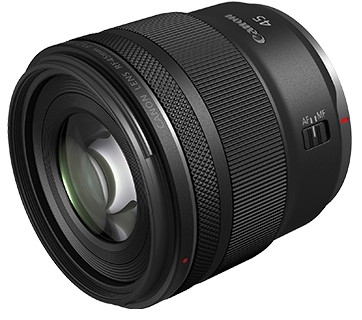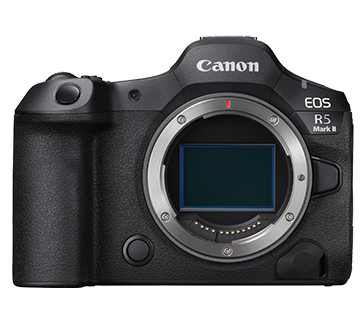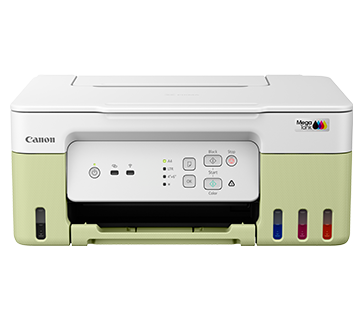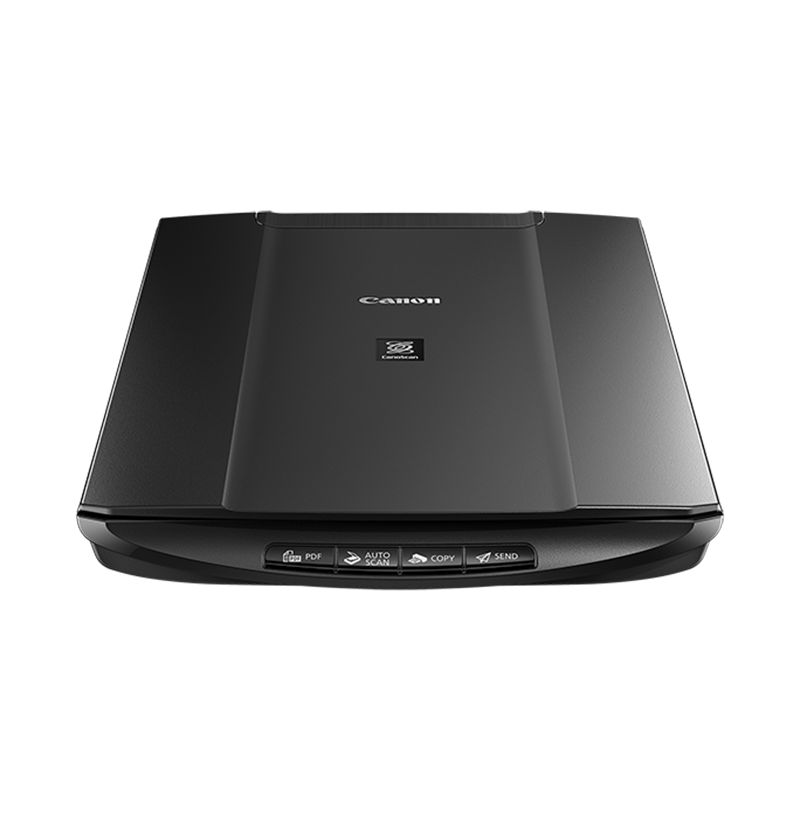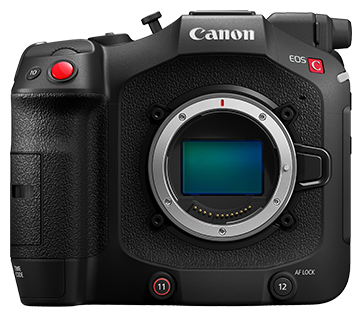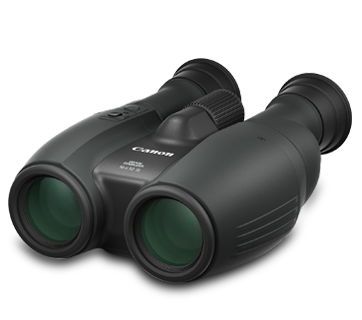The camera is not detected by Windows 7 (in the case of PTP connections)
Solution
If the camera is not recognized correctly by Windows 7, check each of the following items in order.
REFERENCE
If the camera is not recognized by the EOS Utility software, please check whether any of the following cases may be a remedy to the problem.
- The supported software version may differ depending on the camera you use and the operating system installed on the computer.
- When using a camera or computer that differs from the model used initially, please download the supported version of EOS Utility. Versions of the EOS Utility Updater for a variety of cameras/operating systems can be downloaded from the Canon homepage.
If the camera’s [Communication] menu item is set to [PC connection] or [Normal], it will not be detected when connected to a Windows 7 computer.
Use the following procedure to change the camera’s [Communication] to [Print/PTP].
NOTE
The example procedure below is shown using the EOS DIGITAL REBEL XT/EOS 350D DIGITAL.
1. Set the camera’s power switch to <ON>.
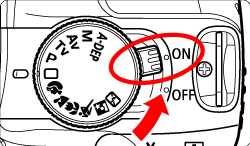
2. Press the <MENU> button, and select [Communication].
- Select the [
 ] tab.
] tab. - Press the <
 > keys to select [Communication], then press <
> keys to select [Communication], then press < >.
>.
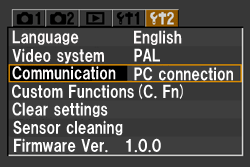
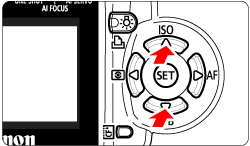
3. Select [Print/PTP].
- Press the <
 > keys to select [Print/PTP], then press <
> keys to select [Print/PTP], then press < >.
>.
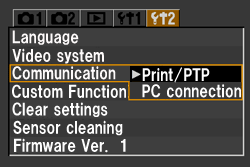
4. Set the camera’s power switch to <OFF>.
5. Connect the camera to the computer, then set the computer’s power switch to <ON>.
If multiple USB ports are available on the computer, switching the cable to another port may help the camera to be recognized correctly.
1. From the [Start] menu ( ), click [Control Panel] (
), click [Control Panel] ( ).
).
 ), click [Control Panel] (
), click [Control Panel] ( ).
).
2. Click [Hardware and Sound].
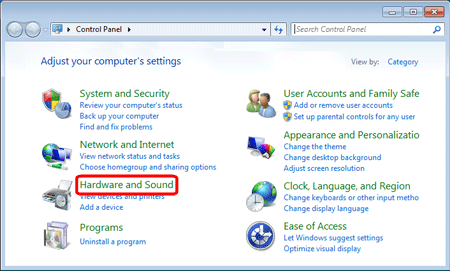
3. Click [Device Manager].
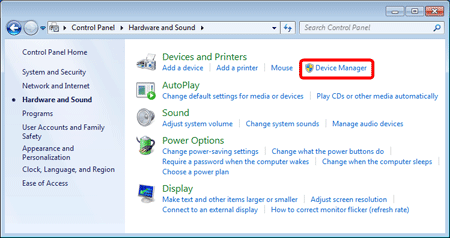
4. Double-click [Portable Devices].

5.  Click the model name of your camera, and
Click the model name of your camera, and  click [
click [  ] (Uninstall).
] (Uninstall).
 Click the model name of your camera, and
Click the model name of your camera, and  click [
click [  ] (Uninstall).
] (Uninstall).
6. Click [OK].

7. Click [  ] (Scan for hardware changes).
] (Scan for hardware changes).
 ] (Scan for hardware changes).
] (Scan for hardware changes).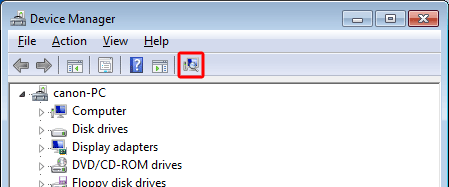
8. If a window like the one below appears, select [Import pictures and videos] to download to a computer.
